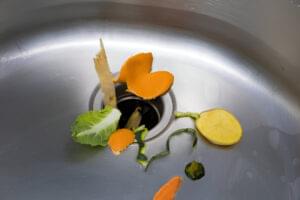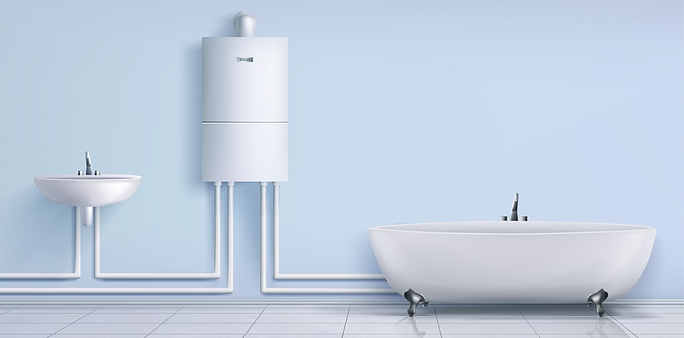Unusual and loud plumbing noises can be a significant source of annoyance and concern for homeowners. These sounds, whether coming from your shower, toilet, or other plumbing fixtures, can indicate underlying issues that need immediate attention. Shower squealing, for instance, is a common complaint that often signals a problem within the plumbing system.
Understanding these unusual plumbing noises and their causes is crucial for maintaining a healthy plumbing system. Ignoring them can lead to more serious issues down the line, such as water damage or increased utility bills. By familiarizing yourself with the different types of noises and their potential sources, you can take proactive steps to address them before they escalate.
In this article, we will explore:
- Common types of loud plumbing noises
- Specific focus on showers and toilets
- Potential dangers of ignoring these sounds
- Risks posed to your plumbing system
- Practical solutions to effectively address these issues
Whether it’s a toilet squealing, a dripping sound in the wall, or a sump pump that sounds like a washing machine, understanding these noises helps you maintain your home’s plumbing integrity and avoid costly repairs. However, it’s essential to note that some issues may require professional intervention. Attempting to resolve complex plumbing problems without proper knowledge can lead to further complications. For instance, the dangers of DIY plumbing should not be underestimated.
In cases where you’re dealing with persistent plumbing issues, it might be time to consider hiring a professional. A new construction plumbing contractor in Round Rock could provide valuable assistance in such situations. They possess the necessary skills and experience to handle various plumbing problems effectively.
Furthermore, if you’re facing recurring issues with your pipes or drains, it may be beneficial to invest in camera inspection services. This technology allows plumbers to accurately diagnose problems within your plumbing system, ensuring effective solutions are implemented.
Lastly, while we discuss potential solutions for these annoying noises, we must also acknowledge the importance of maintaining our local environment. For those living near areas like the Forest Creek Golf Club, it’s crucial to ensure that our plumbing practices do not adversely affect our surroundings.
Understanding Common Plumbing Noises
Loud plumbing noises can be unsettling and often signal underlying issues within your home’s plumbing system. These sounds can range from minor annoyances to indicators of significant problems that may require immediate attention, such as those handled by an emergency plumbing service in Round Rock.
Identifying different types of plumbing sounds is crucial for accurate diagnosis and timely repairs. By understanding what each noise signifies, you can address potential issues before they escalate.
Common Causes of Unusual Noises in Plumbing
Here are some common causes for unusual noises in plumbing:
- Water Hammer Effects: This occurs when a valve closes suddenly, causing a shock wave to travel through the pipes, resulting in a loud banging noise.
- Clogged Drains: Accumulations of soap scum, grease, or hair can cause gurgling sounds as water struggles to pass through blocked areas.
- Loose Components: Vibrations from water flow can cause loose components to rattle against walls or other fixtures.
- High Water Pressure: Excessive pressure within the plumbing system can lead to various noises, including squeals and rattles.
Understanding these sounds helps you maintain a healthy plumbing system and ensures prompt action when needed. Regular maintenance and early detection are key to preventing more severe issues down the line. For instance, utilizing electronic leak detection methods can help identify hidden leaks before they become major problems.
If you’re facing persistent plumbing issues in your home, it might be time to consult with a professional residential plumbing company in Round Rock, TX who can provide expert solutions.
Exploring Shower Noises: Causes and Solutions
1. Clogged Showerhead: A Simple Fix or a Sign of Bigger Problem?
A common cause of shower squealing is a clogged showerhead. When sediment builds up, it blocks the small holes in your showerhead, leading to annoying squealing sounds that disrupt your peaceful shower time.
How Sediment Buildup Leads to Squealing Sounds
Sediment buildup can occur due to hard water, which contains minerals like calcium and magnesium. Over time, these minerals accumulate and obstruct the water flow through the tiny nozzles of your showerhead. This blockage forces water to squeeze through smaller openings, creating high-pitched noises.
Step-by-Step Guide on Cleaning or Replacing a Clogged Showerhead
To tackle this problem, you can either clean the clogged showerhead or replace it entirely. Here’s a step-by-step guide to help you:
- Remove the Showerhead:
- Unscrew the showerhead from the arm using an adjustable wrench.
- Be cautious not to apply too much force to avoid damaging the threads.
- Soak in Vinegar:
- Fill a bowl with white vinegar and submerge the showerhead.
- Allow it to soak for several hours or overnight. Vinegar helps dissolve mineral deposits.
- Scrub with a Brush:
- After soaking, use a toothbrush or small brush to scrub away any remaining debris.
- Pay special attention to the nozzles where most blockages occur.
- Rinse and Reinstall:
- Rinse the showerhead thoroughly with water.
- Reattach it to the shower arm, ensuring it is securely tightened.
- Test Water Flow:
- Turn on the water to check if the squealing noise has been resolved.
- If noise persists or water flow is still restricted, consider replacing the showerhead with a new one.
Regular maintenance of your showerhead can prevent sediment buildup and ensure smooth operation, reducing the chances of encountering unusual and loud plumbing noises.
By addressing this issue promptly, you can enjoy a quieter and more efficient shower experience without the irritating squealing sounds caused by a clogged showerhead.
However, if cleaning or replacing your showerhead doesn’t solve the problem, it might indicate a more serious plumbing issue. In such cases, it’s advisable to consult with professionals who specialize in drain cleaning or sewer line repair, depending on your specific situation.
If you’re located in Round Rock and require immediate assistance, don’t hesitate to reach out through our contact page. Our team of experts is ready to provide reliable plumbing services tailored to your needs.
2. Faulty Shower Valve: When to Call a Plumber?
A malfunctioning shower valve can significantly disrupt proper water flow, leading to persistent noise issues such as squealing. This problem arises because the valve is responsible for regulating water pressure and temperature. When it fails, it may cause erratic water flow and loud, annoying sounds.
Signs that indicate you need professional help:
- Inconsistent Water Temperature: Fluctuating temperatures while showering.
- Persistent Squealing or Whistling: Continuous noise even after cleaning the showerhead.
- Difficulty in Turning the Valve: Stiff or unresponsive handle operation.
- Visible Leaks: Water leaking from the valve area.
If you notice any of these signs, it’s advisable to contact a professional plumber. They possess the specialized tools and knowledge required to address faulty shower valves without causing further damage to your plumbing system. Ignoring these symptoms can exacerbate the issue, potentially leading to more severe problems such as leaks or high water pressure stresses on other components. For assistance in finding a qualified plumber, consider following this guide.
3. Worn-Out Diverter Valve: Understanding Its Impact on Noise Production
A deteriorating diverter valve can significantly contribute to unwanted sounds during shower use. These sounds often manifest as a persistent squealing or whistling noise, disrupting your shower experience. The diverter valve, responsible for directing water flow between the showerhead and the faucet, can wear out over time due to continuous use and high water pressure.
Signs Your Diverter Valve Needs Replacement:
- Inconsistent Water Flow: If you notice fluctuating water pressure or difficulty switching between the showerhead and faucet, this could indicate a worn-out diverter valve.
- Persistent Squealing: Regular squealing sounds when using the shower might point towards a failing diverter valve.
- Visible Wear and Tear: Inspecting the valve for any visible signs of corrosion or damage can help determine if it needs replacing.
Proper maintenance and timely replacement of a faulty diverter valve can prevent annoying noises and ensure a smooth shower experience. However, if you encounter more severe plumbing issues such as unusual and loud plumbing noises, it might be time to consult with professionals. They can provide insights not just about your diverter valve, but also about other aspects of your plumbing system that may need attention like pipe replacements or even garbage disposal replacements.
4. Mineral Buildup: The Silent Culprit Behind Squeaky Pipes?
Hard water is a common cause of many plumbing problems, including squeaky showers and other strange sounds. Hard water has high levels of minerals like calcium and magnesium. These minerals can build up in your pipes and fixtures, causing reduced water flow and increased noise.
Effects on Plumbing Performance:
- Noise Levels: Mineral deposits can create narrow passages within pipes, causing a whistling or squealing sound as water forces its way through.
- Overall Performance: Hard water buildup can reduce the efficiency of your plumbing system, potentially leading to leaks or even pipe bursts over time.
Preventing and Mitigating Mineral Buildup:
- Water Softeners: Installing a water softener can help reduce the amount of minerals entering your system.
- Regular Cleaning: Routinely cleaning showerheads and faucets can prevent mineral deposits from becoming problematic.
- Descaling Solutions: Use descaling agents to dissolve existing mineral buildup in pipes and fixtures.
Ignoring the signs of mineral buildup not only leads to noisy pipes but also shortens the lifespan of your plumbing system. Proactive maintenance is essential for avoiding expensive repairs and ensuring smooth operation.
In some cases, if the mineral buildup is severe, you might want to consider more advanced solutions like trenchless pipe lining, which can effectively restore the functionality of your plumbing without the need for extensive excavation. By understanding the root causes of these noises, you can take effective steps to maintain a healthy plumbing system.
5. High Water Pressure: A Double-Edged Sword for Your Plumbing System?
High water pressure can be a significant factor leading to noisy plumbing, including the notorious shower squealing. When water pressure exceeds the optimal range, it stresses various components such as shower valves, diverter valves, and pipes. This excessive strain can result in loud, disruptive noises that may sound alarming.
Key Impacts of High Water Pressure
- Functional Issues: High pressure can lead to issues like faulty shower valves, which disrupt the smooth flow of water and create unwanted sounds.
- Noisy Operation: Excessive pressure causes pipes to vibrate or whistle, adding to the cacophony of unusual and loud plumbing noises.
Managing High Water Pressure Safely
To mitigate these issues, consider the following solutions:
- Install a Pressure Regulating Valve (PRV): This device helps maintain water pressure within safe limits.
- Regular Maintenance: Inspect your plumbing system periodically for signs of stress or wear caused by high pressure.
- Adjust Pressure Settings: If you have access, reduce the water pressure setting at the main valve to alleviate strain on your plumbing system.
In addition, it’s worth noting that high water pressure can also affect your water heater. For instance, if you’re considering a tankless water heater installation, you might want to consult with professionals about how high water pressure could impact its functionality and longevity. They can guide you on whether you can do water heater repair and installation yourself or if you should opt for professional help. Addressing high water pressure proactively can prevent further complications, ensuring your home remains peaceful and your plumbing operates efficiently.
Risks Associated with Ignoring Noisy Plumbing Problems
Ignoring unusual plumbing sounds can lead to severe consequences for your home. Potential damage from loud plumbing noises isn’t just an annoyance; it can indicate underlying issues that, if left unresolved, may result in costly repairs and increased utility bills.
Consequences of Neglecting Audible Signs
- Structural Damage: Continuous water flow due to leaks can weaken the building’s foundation over time. This is particularly problematic with undetected leaks within walls or floors.
- Mold Growth: Persistent moisture from leaks creates an ideal environment for mold and mildew, posing health risks and requiring expensive remediation efforts.
- Escalated Repair Costs: Small issues like clogged showerheads or minor valve problems can escalate into major repairs if not addressed promptly.
Potential Long-Term Effects
- Undetected Leaks: Small drips may seem harmless but can cause significant damage if they go unnoticed. Water damage can lead to rotting wood, damaged drywall, and ruined flooring.
- Blockages: Clogged pipes not only hinder water flow but also increase pressure within the system. This can cause pipes to burst or joints to fail, creating extensive water damage.
- Increased Utility Bills: Leaks contribute to higher water usage, which translates directly into increased utility bills. Addressing these issues early helps maintain efficient water use.
To avoid such complications, it’s essential to follow some essential plumbing tips that can help in proactive maintenance and timely repairs. These steps are crucial in safeguarding your plumbing system and preventing long-term complications.
Practical Solutions for Addressing Common Plumbing Noises Yourself (or Knowing When It’s Time to Call an Expert)
DIY Steps for Diagnosing Noisy Pipes
- Check Visible Pipe Joints: Inspect all accessible pipes and joints for any signs of leaks or loose connections. Tightening loose joints can often resolve rattling or dripping noises.
- Clean Showerheads: Remove sediment buildup by soaking the showerhead in vinegar overnight. This simple step can eliminate squealing caused by clogged holes.
- Adjust Water Pressure: Use a pressure gauge to measure your home’s water pressure. If it’s too high, installing a pressure regulator can mitigate noise and prevent damage.
- Inspect Diverter Valves: Look for signs of wear or malfunction in diverter valves. Replacing a faulty valve can restore normal operation and reduce noise.
When to Call a Professional Plumber
- Persistent Noises: If the noise persists despite your efforts, it might indicate an underlying issue that requires specialized tools and expertise.
- Complex Issues: Problems like mineral buildup inside pipes or faulty shower valves are best handled by professionals like those from Round Rock Plumbing to avoid further damage.
- Safety Concerns: High water pressure or potential burst pipes are serious issues. Professional plumbers can safely address these problems without risking further complications.
By taking these steps, you can address many common plumbing noises yourself. For more complex issues, calling an experienced plumber ensures the problem is resolved effectively and safely.
FAQs (Frequently Asked Questions)
What causes my shower to squeal?
A common cause of shower squealing is a clogged showerhead, which can lead to restricted water flow and unusual noises. Additionally, issues like a faulty shower valve, worn-out diverter valve, and mineral buildup can also contribute to the sounds.
How does sediment buildup lead to squealing sounds in the shower?
Sediment buildup occurs due to hard water, which contains minerals that accumulate over time. This buildup can restrict water flow through pipes and fixtures, causing them to vibrate and produce squealing or other unusual noises.
What should I do if my showerhead is clogged?
You can tackle a clogged showerhead by cleaning it with vinegar or a descaling solution to remove mineral deposits. If the problem persists after cleaning, consider replacing the showerhead altogether.
When should I call a plumber for noisy plumbing problems?
If you experience persistent noises despite trying DIY solutions, or if you suspect issues such as a faulty shower valve or significant mineral buildup, it’s best to consult a professional plumber for an accurate diagnosis and repair.
How can high water pressure affect my plumbing system?
High water pressure can lead to functional issues such as leaks and damage to pipes and fixtures. It may also exacerbate existing noise problems in your plumbing system, making it crucial to manage pressure levels effectively.
What are some practical solutions for addressing common plumbing noises myself?
To address common plumbing noises, start by checking visible pipe joints for leaks or wear. Inspect your showerhead and valves for clogs or malfunctions. If you notice persistent issues after these checks, it may be time to call an expert.









